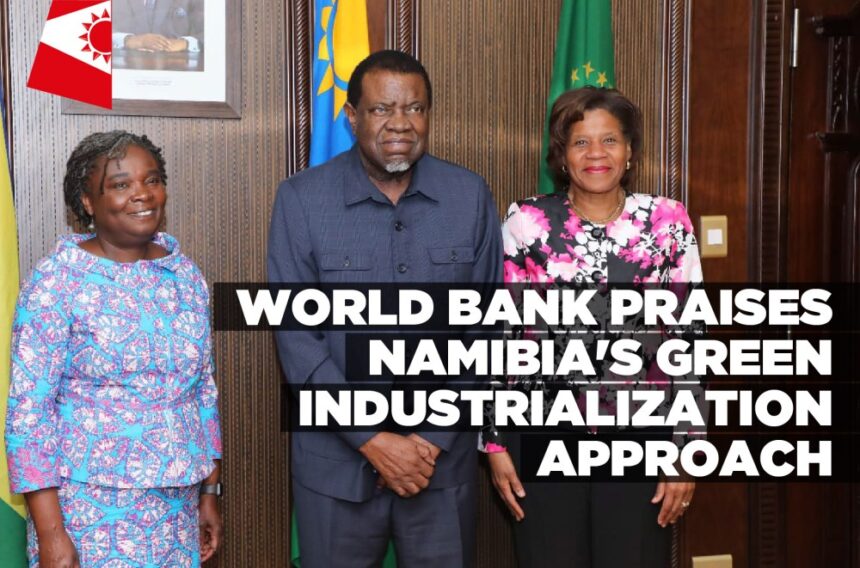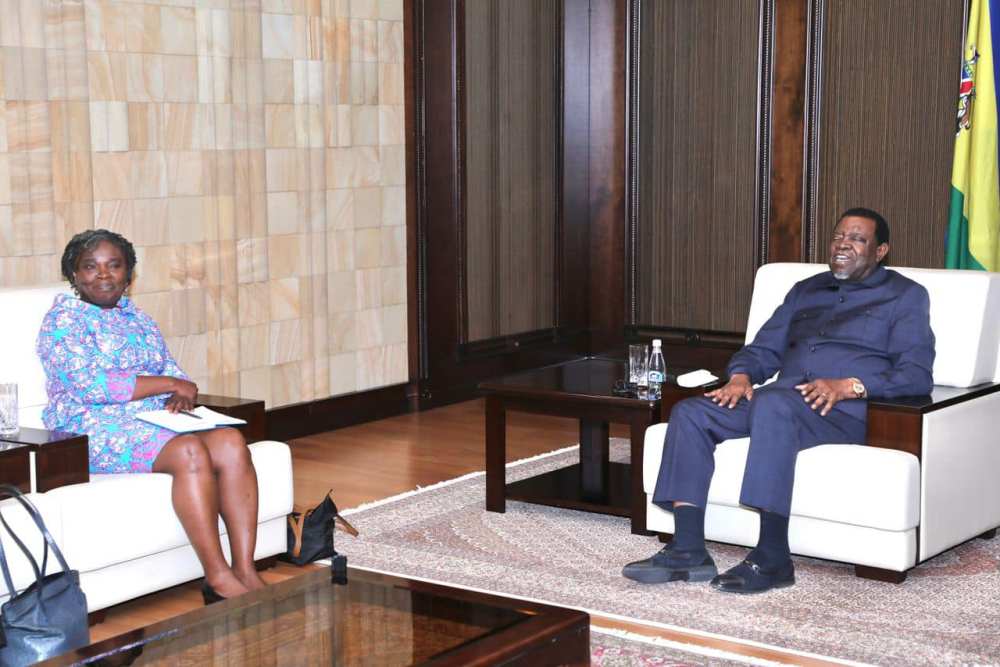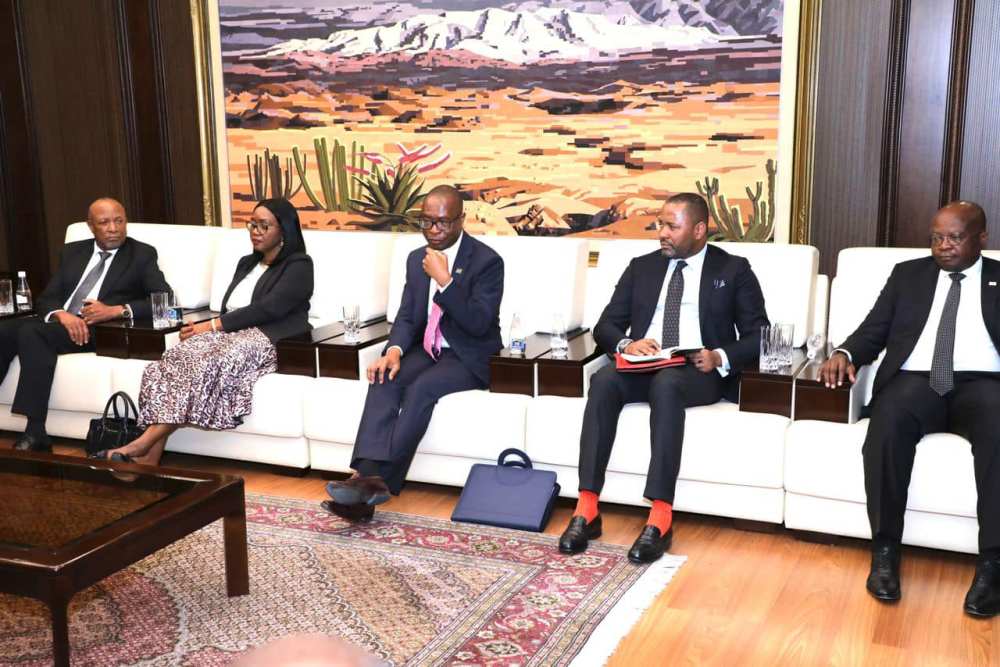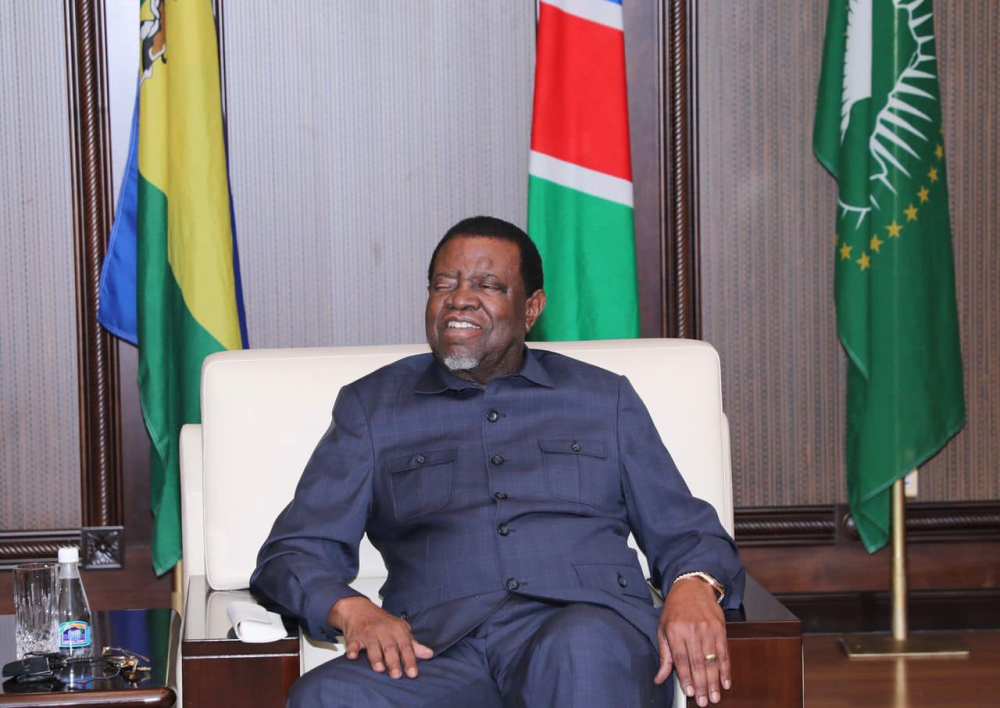Staff Reporter
THE World Bank Regional Vice President for Eastern and Southern Africa, Dr. Victoria Kwakwa, commended Namibia’s green industrialization approach, which aims to add value to green resources before exportation, emphasizing its potential to address the country’s primary challenges of unemployment and inequality.
“I’ve seen a significant interest in the government to arrive at a situation where the country’s development is more broadly shared by all Namibians, you know. So, the focus on green industrialisation for example is clearly the right direction. Because you could say, ‘okay, Namibia has green minerals, let’s just mine them, send them somewhere else to process’. But this effort to build value addition here to transform economically and through that to provide jobs, jobs for all Namibians, including some of the most vulnerable, and pick up the lower-income scale, for me that says a lot. It says a lot about a government that’s committed to ensuring equity and increasing equity over time in the country,” she said.
Dr Kwakwa made these remarks during a recent courtesy meeting with President Hage Geingob, during which she also highlighted the Green Hydrogen Hyphen project and the recently established green iron project with Hylron, a German company, as significant investments that have the potential to stimulate progress in the country, especially considering the focus on local job creation and domestic procurement.
“Your emphasis on green industrialisation holds significant promise. The green industrialisation – which means really tapping all your natural resources, leveraging where the global community is going these days in terms of a green approach to economic activity, just everything that we do – positions you very well,” Dr. Kwakwa said.
According to her, the country’s green industrialization ambitions could contribute significantly to alleviating unemployment. However, she stressed that addressing unemployment and inequality through green industrialization will take time. She, therefore, suggested that the government focus on other areas that could address these challenges in the short term as well. She highlighted the livestock value chain and supporting Small and Medium Enterprises (SMEs) as some key focus areas in this regard.
“The potential of your industrialization approach to make an impact won’t be immediate. Therefore, in the short term, the livestock value chain and support for SMEs can address some of the immediate challenges, while the substantial impact can potentially come from the green industrialization strategy,” Dr. Kwakwa said.
She explained that while Namibia’s beef is exported to a number of lucrative international markets, the country is unable to meet its quotas in the European Union (EU). This, she said, presents an opportunity for growth in this area.
“You’re not able to meet your quotas in the EU, so you have space to grow, and the strategy that you have put in place, which is two pillars, if I understand: one on sustainability and one about inclusion, which is really about delivering on the jobs that help rank and file Namibians to have liveable jobs that can pull themselves out of poverty. Those are key pillars that we have been supportive of and so for us what we could do to support you is to help you move from your strategy to implementation, naturally delivering on the promise of this value chain,” she explained.
In addition to this, Dr Kwakwa also advised the government to continue to support SMEs, emphasizing that it is an important step in promoting equity and addressing inequalities in the country. She stressed that supporting SMEs can create an ecosystem that enables SMEs to access the necessary financing to thrive and, in turn, contribute to job creation in the country.
Dr Kwakwa made it clear that the World Bank is interested in supporting Namibia’s efforts in green industrialization, the livestock value chain, and SME support. She assured that this partnership will be done on the country’s terms.
President Geingob acknowledged that the country faces significant unemployment and inequality challenges. He explained that while the country is considered an upper-middle-income country according to the World Bank, inequality is prevalent. This reality, he emphasized, is not adequately reflected in the World Bank’s classification system, which is one, but not all, of the reasons he is reluctant to partner with the institution.






Leave a Reply